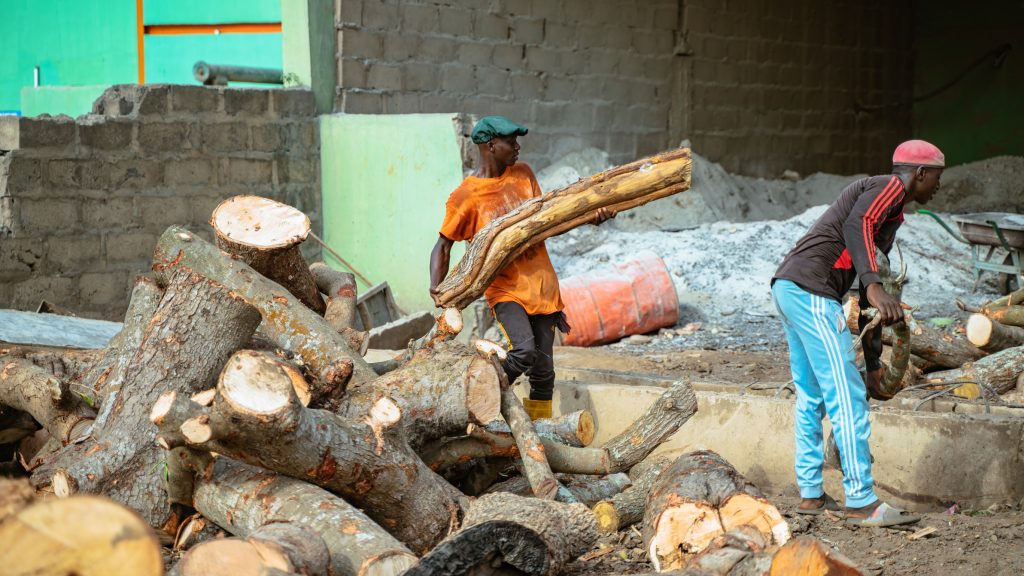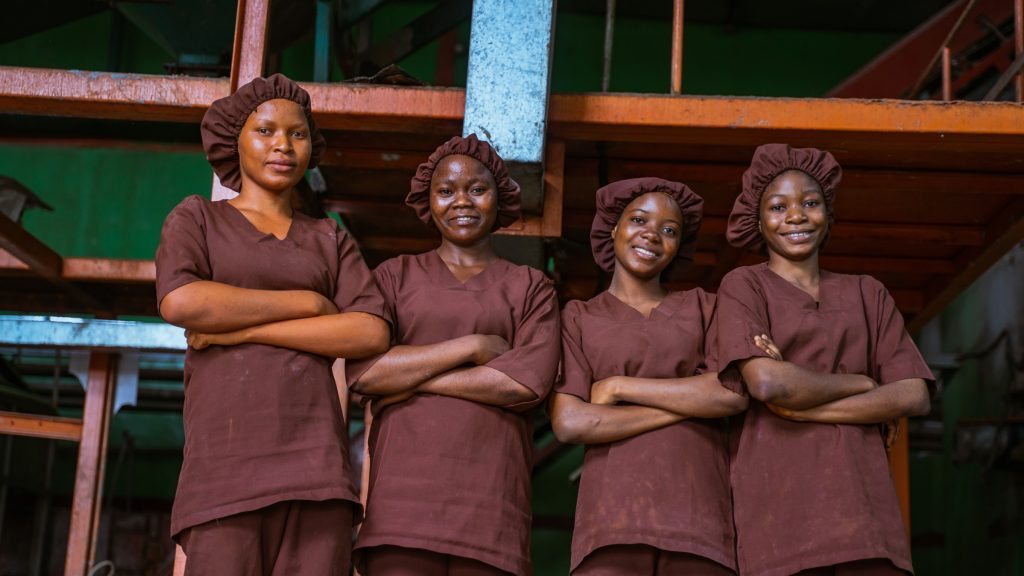Sustainability Practices in Cassava Refining

Sustainability Practices in Cassava Refining: How Psaltry International is Paving the Way for a Greener Future
Sustainability is at the heart of modern agricultural and industrial processes. Adopting eco-friendly practices can lead to significant environmental and economic benefits in the cassava refining sector, where energy consumption, water use, and waste management play crucial roles. At Psaltry International, we prioritize sustainability practices in cassava refining, driving initiatives that enhance environmental protection and operational efficiency. Here’s a closer look at the key sustainability practices and technologies we employ at our refinery.

Embracing Renewable Energy
Energy is vital to cassava processing, but relying on conventional power sources can lead to higher carbon emissions and operational disruptions. One of our core sustainability practices in cassava refining is investing in renewable energy solutions. We have partnered with Starsight Energy to implement a 1.1MW solar power installation, paired with a 1.6MWh battery storage system, at our facility.
This system leverages the abundant sunshine in our region, generating clean energy during the day and storing excess power for use at night or on cloudy days. By reducing our reliance on the national grid, we can maintain a steady, uninterrupted power supply, which minimizes production delays and reduces equipment wear. Additionally, this shift to solar energy has enabled us to cut down on carbon emissions, reducing our environmental impact by up to 15,142 tonnes of CO2 annually.
Reducing Waste Through Resource Efficiency
Traditional cassava processing often results in significant waste, but at Psaltry International, we follow a zero-waste philosophy as part of our sustainability practices in cassava refining. We ensure that every part of the cassava root is utilized, converting by-products such as cassava peels and pulp into animal feed. This circular approach not only helps to lower production costs but also reduces the environmental impact of waste disposal, highlighting our commitment to sustainability across the value chain.

Water Conservation and Recycling
Water conservation is a crucial element of sustainability practices in cassava refining, given the water-intensive nature of the process. At our refinery, we have implemented advanced water treatment systems that allow us to recycle and reuse water during production. These systems enable us to reclaim over 70% of the water used, significantly reducing our dependence on freshwater sources.
By responsibly managing water resources, we ensure that we can maintain production efficiency while protecting local water supplies for the community and environment. This effort underscores our commitment to sustainable water management as part of our broader environmental initiatives.
Eco-Friendly Chemical Alternatives
Chemicals play a necessary role in the refining process, but traditional options can be harmful to the environment. We have adopted environmentally friendly alternatives as part of our sustainability practices in cassava refining. Our shift to biodegradable, less toxic chemicals helps maintain product quality without compromising the health of the local ecosystem.
By minimizing the use of harmful substances, we reduce the release of pollutants and ensure our processes are as green as possible. This commitment to eco-friendly practices is part of our larger effort to create sustainable solutions that protect both our workers and the surrounding community.

Sustainability practices in cassava refining are not just an add-on at Psaltry International; they are a fundamental part of how we operate. Our initiatives—ranging from renewable energy adoption to waste minimization and sustainable sourcing—are designed to create long-term benefits for the environment, our community, and our business. By investing in green technologies and eco-friendly practices, we aim to lead the cassava refining industry towards a more sustainable future.
We believe that the future of cassava refining lies in innovation and sustainability. As we continue to explore and implement eco-friendly solutions, we hope to inspire other players in the industry to join us on this journey towards a greener, more sustainable future. Together, we can make a meaningful impact on our environment and ensure that the benefits of cassava refining extend far beyond today’s generation.
At Psaltry International, we are committed to making a difference, one sustainable step at a time.
